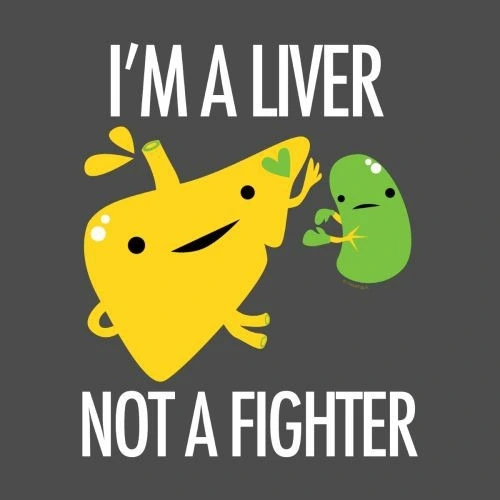#live liver transplant
Photo

I need a piece of liver
Hey there. In short I'm looking for potential donors as I need a live liver transplant. I've set up a bunch of information and links over at - https://ginpuliver.carrd.co/
Even if you cannot help me directly, please share this with others. There is bound to be someone out there that can help.
Thank you all in advance.
Posted using PostyBirb
45 notes
·
View notes
Text


Golden.
#personal#myself#me#liver transplant#organ donation#organ donor#organ transplant#my face#spilled writing#sober journey#soberliving#sober living#sober#tw: alcohol#tw: alcholism
7 notes
·
View notes
Text


//21 years of fighting trying and living//
(Yesterday) I celebrated my 21 years of living with a transplant organ and after 3 whole years I can say.
I'm happy to be alive.
I'm happy to not have killed myself and yesterday it showed, today it shows- tomorrow each day it shows.
It's been a long fight not only those years but the entire run down.
I've been born with a genetic defect to my gallbladder- causing my liver to fail.
The doctors didn't even gave me 2 months and I still made it- I'm here in a bus.
Driving to work- as a 23 year old young adult.
It's weird and yet good- I made it.
So a toast to a set of 21 more years full of life.
#text post#happy second birthday#21 years with transplant and many more to come#its weird to look even back- I can't remember shit#duh i was a baby and so on but#they didnt gave me 2 monthd to live#but here i am on another day in my shift#life is weird isnt it?#organ transplant#liver transplant
2 notes
·
View notes
Text
Exploring the Interplay Between Diseases and Liver Transplant
Understanding the Complexities and Implications
Liver transplant surgery is a life-saving procedure that offers hope to patients with end-stage liver disease and certain liver-related conditions. However, the decision to undergo a liver transplant is often influenced by the underlying disease or condition that necessitates the procedure. In this article, we delve into the intricate connection between diseases and liver transplants, exploring the complexities, implications, and considerations involved.

Liver Diseases Leading to Transplant: Liver transplant is commonly indicated for patients with end-stage liver disease (ESLD), a condition characterized by irreversible liver damage and loss of function. Chronic liver diseases such as cirrhosis, hepatitis B and C, alcoholic liver disease, non-alcoholic fatty liver disease (NAFLD), and autoimmune hepatitis are among the primary causes of ESLD. These diseases progress over time, leading to liver failure and ultimately necessitating a transplant to restore liver function and prolong survival.
Hepatobiliary Cancers: Hepatocellular carcinoma (HCC), the most common type of liver cancer, often develops in the setting of chronic liver disease or cirrhosis. In cases where the cancer is confined to the liver and has not spread beyond, liver transplant may be considered as a curative treatment option. However, stringent criteria and careful patient selection are essential to ensure favorable outcomes and prevent cancer recurrence post-transplant.
Metabolic Liver Diseases: Inherited metabolic disorders such as Wilson's disease, hemochromatosis, and alpha-1 antitrypsin deficiency can affect liver function and lead to progressive liver damage. For patients with severe and unmanageable symptoms, liver transplant may offer a chance for improved quality of life and long-term survival. However, the presence of underlying metabolic abnormalities may pose challenges during the transplant process and require specialized pre-transplant evaluation and management.
Acute Liver Failure: Acute liver failure (ALF) is a rare but life-threatening condition characterized by rapid onset of liver dysfunction and hepatic encephalopathy. Causes of ALF include viral hepatitis, drug-induced liver injury, autoimmune hepatitis, and acute fatty liver of pregnancy, among others. Liver transplant may be considered for select patients with ALF who fail to respond to medical therapy or develop complications such as hepatic coma. Timely referral and evaluation are crucial in optimizing outcomes for these patients.
Autoimmune Liver Diseases: Autoimmune liver diseases, including autoimmune hepatitis, primary biliary cholangitis (formerly known as primary biliary cirrhosis), and primary sclerosing cholangitis, are characterized by immune-mediated damage to the liver and biliary tract. While medical therapy is the mainstay of treatment for most patients, those with advanced disease and progressive liver failure may require liver transplant as a definitive treatment option. Careful management of post-transplant immunosuppression is essential to prevent disease recurrence and graft rejection.
Challenges and Considerations: Despite the potential benefits, liver transplant poses inherent challenges and considerations, particularly in the context of underlying diseases. Patient selection, pre-transplant evaluation, and post-transplant management require a multidisciplinary approach involving hepatologists, transplant surgeons, oncologists, and other specialists. Additionally, the shortage of donor organs, immunosuppression-related complications, and the risk of disease recurrence post-transplant are important factors to consider when weighing the risks and benefits of liver transplant in patients with underlying diseases.
The interplay between diseases and liver transplant is multifaceted and complex, with diverse implications for patient management and outcomes. While liver disease treatment in Bangalore, offers a lifeline to patients with end-stage liver disease, hepatobiliary cancers, metabolic disorders, acute liver failure, and autoimmune liver diseases, careful consideration of the underlying disease, patient characteristics, and transplant-related factors is essential in optimizing outcomes and ensuring long-term success. Through continued research, innovation, and collaboration, clinicians and researchers strive to advance our understanding of this intricate connection and improve the care and outcomes of patients undergoing liver transplant for various diseases.
Let’s know what are approaches taken to Liver transplant
Deceased Donor Liver Transplantation (DDLT) and Living Donor Liver Transplantation (LDLT) are two approaches to liver transplantation, each with its own distinct characteristics and considerations.

Donor Source:
Deceased Donor Liver Transplantation: Deceased Donor Liver Transplantation in Bangalore, the liver is procured from a deceased donor who has been declared brain-dead and has consented to organ donation either during their lifetime or by their family after death.
Living Donor Liver Transplantation: In Living Donor Liver Transplantation, the liver is donated by a living donor, typically a family member or close relative of the recipient. The donor undergoes a thorough evaluation process to assess their suitability for donation, including medical, psychological, and ethical considerations.
Timing of Transplantation:
Deceased Donor Liver Transplantation: The timing of Deceased Donor Liver Transplantation depends on the availability of deceased donor organs, which can vary depending on factors such as organ donation rates, waitlist prioritization, and organ allocation policies.
Living Donor Liver Transplantation: Living Donor Liver Transplantation offers the advantage of scheduling the transplant at a time that is convenient for both the recipient and the donor, minimizing the risk of disease progression and optimizing outcomes for both parties.
Graft Size and Compatibility:
Deceased Donor Liver Transplantation: The size and compatibility of the deceased donor liver may not always match the recipient's requirements, leading to potential mismatches in size or blood type. This can sometimes result in a longer wait time on the transplant waitlist or the need for additional surgical techniques to adapt the donor liver to the recipient's anatomy.
Living Donor Liver Transplantation: Living Donor Liver Transplantation allows for a more tailored approach to graft selection, as the donor liver can be selected based on size, blood type compatibility, and other factors specific to the recipient's needs. This often results in a better match and reduces the risk of graft rejection or complications post-transplant.
Waiting Time and Urgency:
Deceased Donor Liver Transplantation: Due to the limited availability of deceased donor organs, patients awaiting Deceased Donor Liver Transplantation may experience longer wait times on the transplant waitlist, particularly for those with less severe illness or lower priority status.
Living Donor Liver Transplantation: Living Donor Liver Transplantation offers the advantage of shorter waiting times, as the transplant can be scheduled based on the recipient's clinical status and urgency of need. This can be particularly beneficial for patients with rapidly progressive liver disease or acute liver failure who may not have the luxury of waiting for a deceased donor organ.
Risk to Donor:
Deceased Donor Liver Transplantation: There is no risk to the donor in Deceased Donor Liver Transplantation, as the liver is procured from a deceased donor who has already passed away.
Living Donor Liver Transplantation: Living Donor Liver Transplantation carries inherent risks to the living donor, including potential complications related to the surgical procedure, anesthesia, and recovery process. However, advances in surgical techniques and donor selection criteria have significantly reduced the risk of complications for living donors in recent years.
while both Deceased Donor Liver Transplantation and Living Donor Liver Transplantation in Bangalore, offer life-saving options for patients with end-stage liver disease, each approach has its own unique characteristics, considerations, and advantages. The choice between Deceased Donor Liver Transplantation and Living Donor Liver Transplantation depends on various factors, including the recipient's clinical status, urgency of need, compatibility, and availability of suitable donor organs. Ultimately, the goal of liver transplantation is to provide the best possible outcome for the recipient while ensuring the safety and well-being of the donor.
For details get the specialists for the Best Liver Transplant Center in Bangalore
#fatty liver treatment in Bangalore#Liver inflammation treatment in Bangalore#Liver disease treatment in Bangalore#Liver transplantation surgery in Bangalore#Deceased Donor Liver Transplantation in Bangalore#Living Donor Liver Transplantation in Bangalore#best liver transplant center in Bangalore#fatty liver#liver treatment center#liver treatment#fastrecoveryoffattyliver#liver care center Bangalore
0 notes
Text
Liver Donor Transplant in India
Living Donor Liver Transplant cost in India are as follow ; Treatment, Cost Starts From ($), Hospital Stay ; Living Donor Liver Transplant, 32000-36000, 8-10 Days.
https://www.daniamedicare.com/treatment/living-donor-liver-transplant/
0 notes
Text
#Living Donor Liver Transplant in India#Living Donor Liver Transplant#Liver Transplant in India#Liver Transplant
0 notes
Text
youtube
0 notes
Text

The idea of living donor liver transplantation emerged as a groundbreaking solution to tackle the substantial shortage of deceased donor livers for a liver transplant. In this procedure, a healthy individual voluntarily donates a portion of their liver to a recipient. This approach relies on the liver's remarkable regenerative capacity, enabling it to grow back to its original size within weeks, fully restoring liver function for both the donor and recipient.
The selection process for potential liver donors involves a thorough evaluation to determine their suitability for the liver transplant surgery. This rigorous assessment encompasses a range of medical tests, consultations, and discussions to ensure the donor's physical and psychological well-being. It also ensures that the donor fully understands the associated risks and voluntarily makes an informed decision.
Once found eligible and willing to proceed, the liver transplant procedure is carefully planned and performed. Under general anesthesia, a specific section of the donor's liver, often the right lobe, is meticulously removed. After the surgery, the donor's recovery takes several weeks, closely monitored by medical professionals. Continuous advancements in medical technology and surgical expertise have significantly improved the safety and liver transplant success rates in case of living donors.
There are many good doctors and hospitals in Bangalore for the treatment of liver diseases and liver failure.
The liver transplant cost in Bangalore is generally higher for a living liver donor transplant than a deceased donor transplant.
The cost of liver transplant in Bangalore will also vary depending on the health of the patient, the doctor and hospital chosen for treatment, and the insurance coverage of the patient.
#liver transplant#liver disease#liver failure#living liver donor#liver transplant procedure#liver transplant surgery#liver transplant cost#liver transplant cost in Bangalore#cost of liver transplant in Bangalore
1 note
·
View note
Text
Risks Involved in Liver Transplant
A liver transplant is a big operation that has a risk of some serious complications. These can occur during, soon after, or even years afterward.
1) Failure to comply with the immunosuppression medical regimen is the number one cause of organ failure.
2) Reappearance of certain diseases like Hepatitis C, narrowed bile duct, etc.
3) Regular intakes of medicines to keep the immune system, and body's defense against germs from treating the new liver as an invader that needs to be attacked.
4) Hepatic Outflow Obstruction, etc.
Here, in this video one of the top liver transplant surgeon in Delhi/NCR Dr. Vivek Vij explains to us certain risks that are involved in Liver Transplantation.
Watch this video to know more.
0 notes
Text

Fatty liver is a disease that affects a person’s liver. Apart from this, fatty liver (steatosis) is a common condition that occurs due to the accumulation of too much fat in the liver. Healthy liver contains small amounts of fat. This becomes a problem when fat reaches 5% to 10% of the liver weight.
The condition of fatty liver disease can be seen due to the presence of other disease conditions. Certain risk factors make a person more likely to develop it. They are:
Being obese or overweight.
Having type 2 diabetes or insulin resistance.
Having metabolic syndrome (insulin resistance, high blood pressure, high cholesterol, and high triglyceride levels).
Intake of certain prescription drugs, including amiodarone, diltiazem, tamoxifen, or steroids. It can cause fatty liver.
The fatty liver problem can happen to a person of any age. There are no symptoms in the early fatty liver. Symptoms may appear when the problem is complicated. They are:
Swelling in the stomach.
Excessive gas in the stomach.
Loss of appetite
Weakness and lethargy.
Feeling of heaviness in my chest.
Not feeling hungry
Not being able to do any work
There are many hospitals in Mumbai where liver transplant is done with great success.
#liver transplant#liver failure#liver disease#liver damage#fatty liver#liver cirrhosis#hepatitis#liver donor#living donor liver transplant
0 notes
Text
It has been 158 days since I had a sip of alcohol.
130 days since I found out I was dying.
97 days since I found out that I was going to live.
274 blood draws. 7 IVs. 6 blood transfusions. One less gallbladder. Someone else's liver. Someone else's life, that now lives on through me. A family that missed their loved one over the holidays. My family, who spent the holidays with me for the first time since my Father passed away.
14 pills in the morning. 14 pills at night. 6 pills in the afternoon. Don't eat this. Be sure you eat that. Here's a protein shake. You are gaining too much weight. Now you are too thin. Make sure you do not handle your cat's litter boxes. No, you should not go back to work. Hire someone to help you clean. No, the government will not help you with disability. You are guaranteed disability for a year. No, social security denied you. You have PTSD and severe anxiety. Stop talking about it a concerning amount.
Lately I am consumed by the idea of what is defining me and my life, and how much I despise the precedence that other people dictate that definition. I desperately do not want to be the beer chick who publicly fled an abusive relationship. I do not want to seem ungrateful when I become irritated with kind people who offer me a chair saying, "I'm recovering from surgery". The phrase, "you're so strong!" has become my least favorite statement. Forgive me, but what option did I have? Strength was not some personal choice, I did not sign up or alter my personality to handle my medical trauma the way that I did. It was simple.
Do it or die.
So I did it. And I didn't die. And I channeled all of my energy into overcoming, into living an authentic life, to not dwelling in the things that hurt me, to standing up on my own every day even if my joints killed me and my tacrolimus was making me want to keel over. Even if I don't sleep at night from the nightmares, from the regrets, the stress of financial loss and thinking about all of the money I wasted trying to foster a life that I frankly deserved more from.
At the end of the day, the regrets are useless, and I suppose the statement of strength is as true as my sentiment that I had no other option. I have always been a force of nature, my Father would not have had it any other way, and a lions heart. There was no world that I was going to crumble, and if I was going to die, I was going to do so with my head held high.
I wish I could go back a year. I would erase you. I would have gone to the doctor before my liver completely failed, and tried to slow the death inside of me. I could have saved my money, worked harder, become sicker slower. My heart would be intact and I would sleep easier at night. Regrets would lay less heavily. In this parallel world, I am so much lighter and my torso isn't scarred in half. A lot of the aspects of my old life when I was drinking were much more difficult than my life now. The secrecy, the shame, the illness. My struggles are brazen now and unapologetic.
I can live like this.
#personal#words#myself#me#liver transplant#organ donation#organ donor#organ transplant#spilled writing#sober journey#sober living#clean and sober#liver disease#tw: abusive relationships#tw: alcohol#tw: drinking#sober#soberlife#recovery#self compassion
1 note
·
View note
Text
Illinois Dad Donates Liver To Save Another Dad’s Life
An Illinois father of two donates part of his liver to save the life of another dad in his community, even though they’d never met. Last year, suburban Chicago dad Dan Droszcz was diagnosed with stage IV terminal liver cancer. The 52-year-old father of three was told by doctors that he wasn’t eligible for a transplant, but they’d do what they could to give him as much time as possible.
After undergoing surgery, chemotherapy, and radiation, his condition improved and he could get in line for a transplant, but since he wasn’t a great candidate, he’d be low on the transplant list. His best chance to survive was finding a living donor on his own, so his family started getting the word out and that’s how Chris Staehlin found out about Dan. Chris, a 35-year-old husband and father of two, was the first person outside of Dan’s family to get tested and he was a perfect match.
The only thing Chris knew about Dan was that he lived nearby and was a dad in need of a liver. Despite Dan’s family wanting to meet the man who was going to save their dad’s life, Chris held off in case something happened that would prevent him from being able to donate. The two had a successful transplant surgery the last week of August and afterward they finally met. "How's my liver treatin' ya?" was the first thing Chris said to Dan. "It's treating me good," he replied. "I love you, man. You're family now." Obviously, Dan and his family are eternally grateful for their hero, but what surprised Chris was how good it feels to know that he was able to help another dad be able to be there for his kids. "It’s a wild ride, from the start until now,” Chris says. “Crazy that I was able to help someone like this."
Source: Patch

#GoodNews#Kindness#Compassion#Generosity#Family#Living Donor#Liver Cancer#Transplant#Illinois#Chicago
0 notes
Link
0 notes
Text
I also spend a lot of time trying to convince people to prevent problems, because prevention still works better than cures. Don't fucking smoke! I would instantly become the best doctor who ever lived if I could just convince all my patients to quit smoking. Avoid alcohol! Don't do meth! Don't do fentanyl! Things that are poisons will poison you in ways you understand, in the short term, but also ways you can't really understand until you've watched dozens of people die from it thirty years later, struggling to breathe from their COPD or weak and nauseated beyond bearing from their end-stage liver disease. I watched a man take 3 weeks in the ICU to die from what meth did to his heart. Your heart isn't meant to beat 145 times a minute for weeks on end. Your liver isn't meant to metabolize 5 shots of gin a day. You aren't going to be able to use denial and willpower to repair the damage your own habits did.
I drink a lot less now than I did before I went into medicine. Lot of different reasons, including that I'm older and more settled. But I can't look at it the same way I used to; I can't brush off as a "fun quirk" what I know is alcohol use on a level that risks withdrawal seizures if they were to suddenly stop, like some of my family members do, nervously asking me about their loved one's drinking when we're alone because beneath the jokes they know it's a problem.
If you're having more than one, maybe two drinks a day on average, over a long period of time, you are damaging your body in ways you don't understand. You're setting up a permanent heightened inflammatory state. Your heart cells don't like alcohol; Google "alcohol-induced cardiomyopathy." Your esophagus and stomach respond to incessant bathing in poison by first developing wounds and then cancer. Your liver, of course, doesn't like it. Your liver not only converts poisons to harmless substances you can excrete, it also makes your platelets, so your blood can clot. It makes albumin, a protein that's essentially for keeping water in your blood vessels and not letting it leach into your tissues. So people who are dying of liver failure are in pain and weak and tired and sad the whole fucking time! And the only solution, a liver transplant, will come with a lifetime of medication and specialist check-ups and the knowledge that if you fuck up and kill this liver, too, no one is going to be eager to give you another try.
I don't guilt-trip my alcoholic patients with liver disease. I don't guilt-trip my smokers with COPD. They chose to cope with substances for reasons, even if I disagree with their reasons, even if those reasons are opaque to me. They will suffer the natural consequences of those actions whether I guilt-trip them or not. I want them to continue to see me, I want them to be honest with me. Other people will lay enough guilt on them. And nothing I can say or do would ever compare to the physical and mental suffering that goes with those diseases.
But if you can prevent these diseases in yourself, prevent them. Quit smoking. Do it now. Your lungs are going to look better starting almost immediately, with positive changes continuing for many years. Drink less alcohol. Sure, it's fun, sure, it's a longstanding human tradition, but it is also unfortunately a straight up poison and your body knows that no matter how persuasively you argue about the obvious failure of Prohibition. You can't argue with a cell. You can't convince your kidneys that high blood pressure shouldn't damage them. They are a system; they do what they do; they existed long before prefrontal cortex existed to justify what we want to do but know to be harmful.
1K notes
·
View notes
Link
0 notes